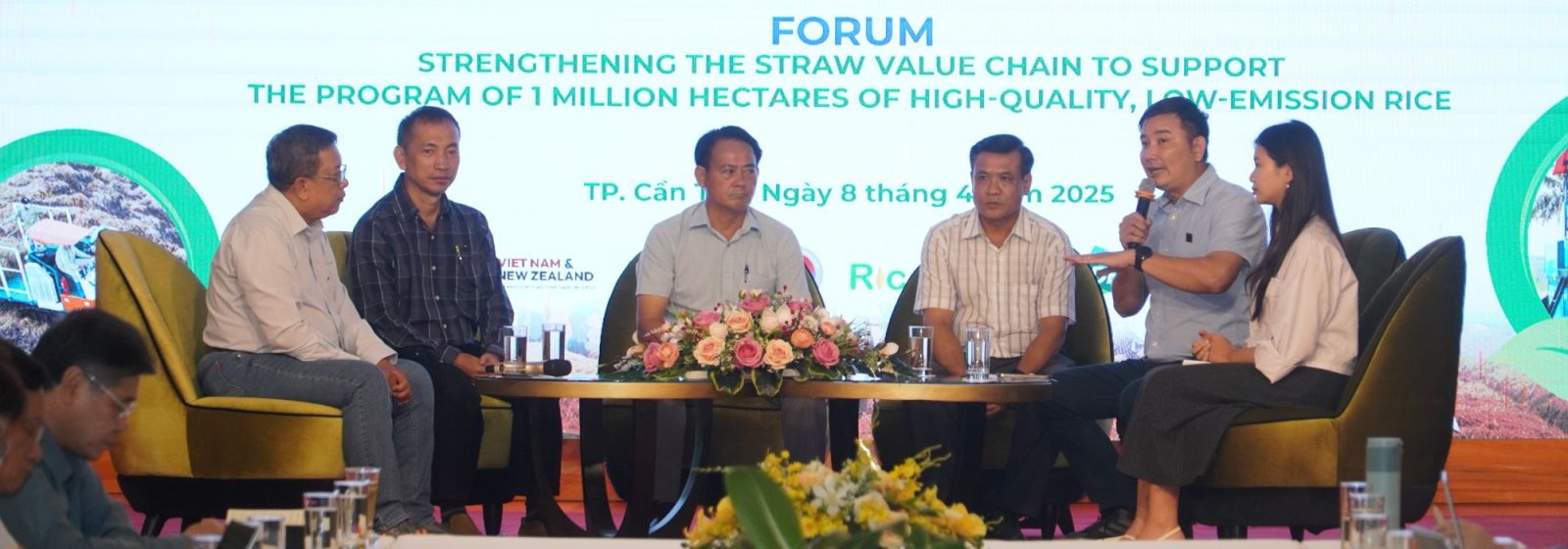Vietnam Forum Highlights Potential of Rice Straw from Mekong Delta

Can Tho, Vietnam (April 8, 2025) — The Mekong River Delta, Vietnam’s leading rice-producing region, generates over 24 million tons of rice straw annually. Despite its potential as a valuable agricultural biomass, about 70% is either burned or returned to the soil, resulting in resource loss and higher greenhouse gas emissions. Such challenges were addressed at a recent forum in Can Tho.
The forum, titled Enhancing Rice Straw Value Chains to Support the One-Million-Hectare High-Quality and Low-Emission Rice Program, focused on strategies to manage the nearly 14 million tons of rice straw produced annually under the One-Million-Hectare High-Quality, Low-Emission Rice Program (1mHa Program).
Dr. Tran Thanh Nam, Vice Minister of Agriculture and Environment, highlighted the importance of developing diverse, multi-benefit products from rice straw for sustainable management.
Building on the Vice Minister’s message, Le Thanh Tung, Vice Chairman of VIETRISA, emphasized the role of circular agriculture in increasing income, enhancing sustainability, and reducing emissions. He discussed the shift toward collecting and using rice straw for organic fertilizers, construction materials, and animal feed.
The strategy includes adopting technologies such as drying, composting, and using rice straw for construction materials to increase value and efficiency. It also focuses on circular agriculture models that convert agricultural byproducts like rice straw into value-added goods. Enhancing mechanization for collection and processing is critical to improving efficiency and reducing costs.
An IRRI survey of 10,000 farmers during the 2023–2024 winter-spring season found that 54% still burn straw, 39% collect it, and the remainder incorporate it into the soil. Research led by Dr. Nguyen Van Hung, Senior Scientist at IRRI, shows the strong economic potential of improved straw management. Activities such as baling, mushroom cultivation, composting, and using compost in rice farming add VND 33.5 million per hectare—35–40% more than rice cultivation alone. Total income from the full value chain, including compost production and application, reached VND 133.5 million per hectare annually.
The forum, organized by the Vietnam Rice Sector Association (VIETRISA), IRRI, and the Department of International Cooperation under the Ministry of Agriculture and Environment, aimed to achieve 100% rice straw collection by 2030. The forum also emphasized how increasing the value of agricultural byproducts through circular economy approaches can drive income generation, sustainability, and emission reduction in the region.